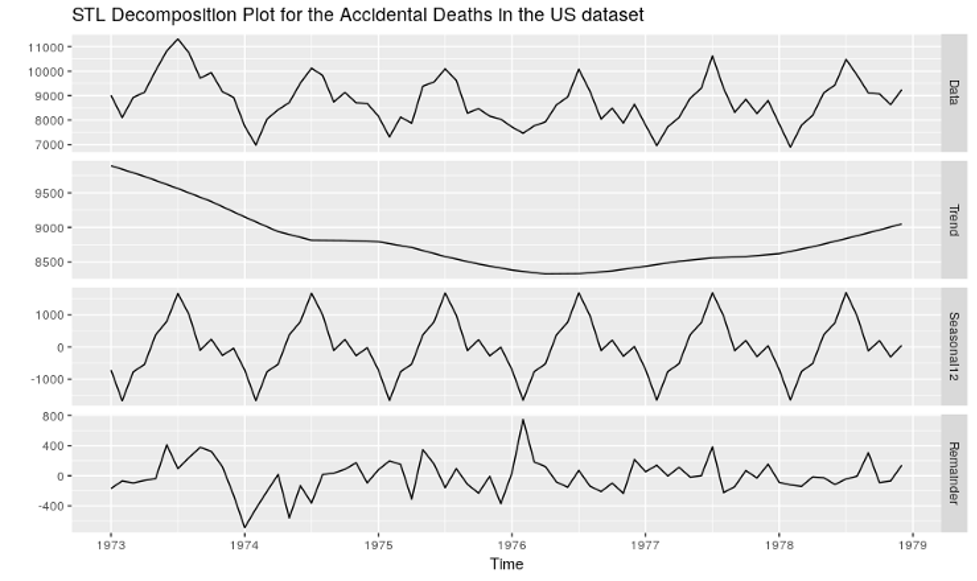Digital engineering services accelerate developing and deploying new software product innovations through best-in-class agile practices. They encompass various technologies and approaches to design, create, and manage complex systems and solutions. Given that the field is so vast and constantly evolving, there is a need to clarify the scope and focus.
This guide answers the question, “What are digital engineering services?” with a close look at eight
essential services.
Cloud Services
The cloud provides instant access to files, data, and services to authorized users anywhere. All industries can benefit from cloud services to improve flexibility, collaboration, and productivity. Cloud services also help companies optimize IT costs, quickly adapt to customer demands, and scale infrastructure.
As a cornerstone of contemporary digital engineering services, companies get the following cloud services:
- Cloud migration to move data, applications, and multiple business operations to a cloud infrastructure.
- Cloud architecture and engineering to build user-friendly interfaces in the modern cloud environment.
- Cloud optimization to select and assign resources for workloads and monitor performance, security, and cost.
- Cloud security to mitigate risks and maximize potential with specialized services like task automation,
- Development security operations (DevSecOps,) and training programs.
- DevSecOps in the cloud to seamlessly integrate security from the start of the software pipeline through the completion of the entire lifecycle.
- Infrastructure-as-code (IaC) to enable automated infrastructure creation and configuration, save time, and prevent misconfigurations.
- Observation to achieve high scalability and optimize system performance through data-driven decision-making, detection, and resolution.
- Access to multi-cloud vendors and host applications, infrastructure, and other services.
Product Engineering and Development
Product engineering and development involves strategizing, executing, and managing all product lifecycle phases with agile processes, advanced tools, and insightful metrics. Technology companies, manufacturers, and startups need product engineering and development services to create and bring new products to market.
Product engineering and development services include:
- Product development focused on extensive communication about small, incremental deliverables.
- Product testing to verify the efficacy and outcomes of any product or service.
- Product management for expert guidance in product lifecycle management strategy.
- Product modernization to custom re-engineer frameworks to upgrade legacy applications, products, and platforms.
- Product architecture design to define the overall structure and organization of a product’s components, modules, and subsystems.
- Product deployment and support to provide ongoing assistance and ensure product functionality.
- Product strategy and ideation to create competitive advantages, capabilities, and strategic value.
- Product innovation to stay ahead of the competition with enhancements, product migrations, new product launches, and more.
- Software product localization to adapt software products to meet the specific cultural, linguistic, and functional requirements of the target market.
- Product analytics and insights to get valuable product data to understand user behavior, identify improvement opportunities, and drive data-driven decision-making.
DevSecOps
DevSecOps shortens development lifecycles and improves security at every stage of development. With DevSecOps, companies can achieve a faster time to market, address security threats effectively, and enhance software development on multiple levels. All companies, especially those that develop software and apps, need DevSecOps to maintain agility in the development process without compromising security.
As part of digital engineering services, DevSecOps includes:
- Continuous integration and continuous deployment (CI/CD) to accelerate the delivery of top-quality software.
- Continuous delivery to automate software movement across the software development lifecycle.
- IaC to enable automation, save time, and prevent misconfigurations.
- Release management and automation to streamline and automate the application development pipeline.
- DevSecOps strategy and planning to improve agility and respond in real-time to shifting market demands and evolving security threats.
- Automation and toolchain optimization to efficiency, collaboration, and security.
- Monitoring and observation to assess the overall health of a system and collect internal state components.
- Microservices architecture and domain-driven design (DDD) to carry out a single business operation with small, programmed, and self-contained services.
- Managed services and support to handle daily operations and maintenance of the DevSecOps environment and avoid service disruptions.
- Site reliability engineering (SRE) to achieve the appropriate and sustainable level of reliability and manage scale and complexity.
Data Modernization and Engineering
Data modernization and engineering use advanced statistical tools to distill meaningful insights from data and drive business growth strategies. They are essential for transforming legacy systems into contemporary, future-proofed solutions. Any company still using traditional infrastructure, software, or systems can benefit from data modernization and engineering to improve data quality, optimize operations, and improve decision-making.
Data modernization and engineering services include:
- Data architecture creation to design and organize data assets within a data management framework, from collection to consumption.
- Data analytics and business intelligence (BI) to analyze historical data to make accurate, data-driven decisions for improved efficiency and effectiveness.
- Machine learning (ML) and artificial intelligence (AI) models to build algorithms that learn from experience, identify patterns, and make data-driven decisions.
- Data operations (DataOps) and machine learning operations (MLOps) to maximize the value of data, focusing on agile data infrastructure and automating ML processes using development operations (DevOps.)
- Data strategy to ensure data quality initiatives and have them align with business objectives.
- Data pipeline engineering to improve the efficiency of process les and analyze data in real-time for valuable insights.
- Data integration to achieve seamless data integration with a unified approach to data gathering, mapping, cleaning, and more.
- Data management and governance to take control of data assets with robust and compliant governance frameworks and data policies.
- Data products to conceptualize, design, and develop data-driven solutions that address specific business needs.
- Edge and geospatial data analysis to extract valuable insights from data collected at the edge of a network and geospatial data sources.
Digital Experience
Digital experience uses user interface (UI) and user experience (UX) technologies and practices to create intuitive brand experiences and drive market growth. All businesses with a digital presence need digital experience services to attract and retain customers. Digital experience services increase user engagement, improve customer satisfaction, boost brand reputation, and increase conversion rates.
Digital experience services include:
- UX design to integrate functionality, content, and personalization to create meaningful customer experiences.
- UX research and analysis to gather real-time data based on current user experiences.
- Web and mobile app design and development to achieve lasting digital experiences.
- Metaverse services to create immersive alternate reality (AR), virtual reality (VR), and mixed reality (MR) experiences.
- Customer experience (CX) transformation to develop cohesive engagement experiences across devices and channels.
- Content management systems (CMS) to manage and publish content across multiple industries.
- Chatbots and virtual assistants to facilitate analysis, customer support, and more.
- Digital campaign management to accelerate commercial success through rapid market adoption.
- Customer analytics to apply insights and drive business growth.
- eCommerce solutions to position businesses as category leaders in the digital marketplace.
Quality Engineering
Quality engineering allows companies to access reliable, secure, and up-to-date software products and services with the highest quality and industry standards. Businesses, software developers, and IT departments rely on quality engineering to deliver sophisticated, fault-free software solutions.
Quality engineering services include:
- Test strategy and planning to get an overall approach and guidelines for conducting effective testing in software development projects.
- Unit integration and testing to deliver high-quality software through reliable testing.
- Load and performance testing to identify and eliminate bottlenecks before software launch.
- Mobile testing to establish effective testing tailored to specific project needs.
- Microservices, application programming interface (API), and data testing to expose errors and uncover minor issues by enhancing the speed and efficiency of test cycle evaluation.
- Functional testing to verify the accuracy and operation of an API.
- Security and penetration testing to enable automated infrastructure creation and configuration, save time, and prevent misconfigurations.
- Accessibility audits to gain valuable insights, embrace diversity, expand audience reach, and enhance user satisfaction.
- Test case development and execution to verify the functionality, performance, and error-handling of software.
- Test automation to deliver faster results by executing large amounts of test cases in less time.
Cybersecurity
Cybersecurity services help companies mitigate digital risks and protect against digital threats. All businesses with an online presence require cybersecurity to maintain safety, privacy, and security.
Cybersecurity services include:
- Includes zero trust architecture (ZTA) to enhance security by embedding measures, authentication methods, and using network segmentation.
- User and entity behavior analytics to develop a framework for identifying security anomalies and malicious activities.
- Blockchain and hashgraph practices to prevent unauthorized alterations and enable decentralized storage and sharing of digital data.
- Data application and security to safeguard running apps and networks.
- Storage and database security to analyze messages in transit on managed endpoints, file services, cloud apps, and cloud storage.
- Monitoring and log analytics to maintain the performance and functionality of applications and core services.
- Privacy-enhancing computation to prevent unauthorized access to private data.
- Data protection, privacy, and compliance to safeguard personal info and ensure responsible handling.
- Cloud security to gain control over the cloud and mitigate security risks.
- Security assessment and pen testing to identify and address cybersecurity vulnerabilities.
Generative AI
Generative AI helps companies meet unique business needs with a wide range of tailored features and benefits. Generative AI amplifies innovation, creativity, and efficiency through the disciplined application of generative AI tools and methods. Nearly all businesses can benefit from generative AI services, but they are particularly popular with design, content creation, and software development companies to automate creative processes and improve productivity.
Generative AI services include:
- Sprint planning to maximize efficiency and productivity by streamlining the sprint planning process, automating user story creation, and dramatically reducing time spent on this task.
- Large language models to power virtual assistants that engage in natural, seamless conversations and respond in a near human-like manner.
- Enterprise datasets that transform enterprise datasets into strategic assets for innovation and success.
- Advanced models and tools that help transform and interpret data, uncovering hidden patterns and enabling data-informed decisions.
- UI/UX design generation to realize a creative vision for an app in seconds.
- Code synthesis, refactoring, and documentation to accelerate the development lifecycle, reduce manual efforts, and ensure code quality with advanced tools that generate code snippets, optimize existing code, and create comprehensive documentation.
- QA automation framework to streamline testing efforts, increase productivity, and achieve high-quality software quickly.
- Monitoring and observation to gain real-time insights into data patterns and anomalies.
- Data management and analytics to optimize tasks in the data management value chain, including data collection, preprocessing, integrations, storage retrieval, and insight generation.
Encora’s Digital Engineering Services
With leading digital engineering services, Encora helps companies define their strategic innovation roadmap, build capabilities to accelerate the pace, fast-track development process, and maximize market adoption. Fast-growing tech companies partner with Encora to provide comprehensive digital engineering services. We are deeply expert in the various disciplines, tools, and technologies that power the emerging economy, and this is one of the primary reasons that clients choose Encora over the many strategic alternatives that they have.
To learn more and get started with digital engineering, contact Encora today.


